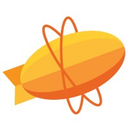
Optimal Workshop Review 2025: Features, Pricing & More

Optimal Workshop provides a comprehensive suite of user research tools with robust data analysis capabilities. Its intuitive interface ensures easy navigation, though beginners may face a learning curve.
- Comprehensive user research tools
- Intuitive interface for easy navigation
- Robust data analysis capabilities
- Limited customization options
- Steep learning curve for beginners
What is Optimal Workshop?
Pros and Cons of Optimal Workshop
- Optimal Workshop offers a suite of tools that cover various aspects of user research, making it a one-stop solution for UX professionals. Its range of features ensures thorough insights.
- The platform's user-friendly design allows you to navigate through its features effortlessly, reducing the time spent on learning and increasing productivity.
- With powerful data analysis tools, Optimal Workshop helps you make sense of complex data, providing actionable insights that drive informed decision-making.
- While the tools are comprehensive, the customization options are somewhat limited, which might not meet the needs of all users looking for tailored solutions.
- New users might find the initial learning curve challenging, as the platform offers a wide array of features that require time to master.
Optimal Workshop Review: Is It Really That Good?
Value to Price
When I first explored Optimal Workshop, I was impressed by the value it offers for its price. The comprehensive suite of tools available makes it a cost-effective choice for UX professionals. You get access to card sorting, tree testing, and more, all under one roof. This integration of multiple research tools saves both time and money, as you don't need to invest in separate platforms. The insights gained from using these tools are invaluable, making the investment worthwhile.
Ease of Use
Navigating through Optimal Workshop is a breeze, thanks to its intuitive interface. I found that even complex tasks were simplified, allowing me to focus more on analysis rather than figuring out how to use the tool. However, for those new to user research platforms, there might be a slight learning curve. But once you get the hang of it, the efficiency it brings to your workflow is undeniable. The design is user-centric, reflecting the very principles it helps you study.
Functionality
The functionality of Optimal Workshop is where it truly shines. It offers a range of tools that cater to different aspects of user research, from card sorting to tree testing. Each tool is designed to provide deep insights into user behavior, helping you make informed design decisions. I particularly appreciated the detailed reports and visualizations, which made data interpretation straightforward. This level of functionality is rare in a single platform, making Optimal Workshop a standout choice.
Scalability
As your research needs grow, Optimal Workshop scales with you. I found that it handles both small and large projects with ease, maintaining performance and reliability. This scalability is crucial for teams that anticipate growth or handle varying project sizes. The platform's ability to manage increased data without compromising on speed or accuracy is a testament to its robust infrastructure. It's reassuring to know that as your demands increase, Optimal Workshop remains a dependable partner.
Integrations
Optimal Workshop integrates seamlessly with other tools, enhancing its utility in a researcher's toolkit. I found the integration with popular platforms like Slack and Trello particularly useful, as it streamlined communication and project management. These integrations ensure that your workflow remains uninterrupted, allowing for a more cohesive research process. While the integration options are extensive, I did wish for a few more niche integrations to cater to specific needs. Nonetheless, the existing options are robust and reliable.
Customer Support
The customer support provided by Optimal Workshop is commendable. Whenever I had queries, the support team was prompt and helpful, ensuring that my issues were resolved quickly. This level of support is crucial, especially when dealing with complex research tools. The availability of detailed documentation and tutorials also aids in self-help, reducing the need for frequent support interactions. However, for those on the free plan, the support options might be slightly limited, which is something to consider.
Security
Security is a top priority for Optimal Workshop, and it shows. The platform employs robust security measures to protect your data, giving you peace of mind. I appreciated the transparency in their security protocols, which are clearly outlined and easy to understand. This focus on security ensures that sensitive research data remains confidential and protected from unauthorized access. For teams handling sensitive information, this level of security is not just a bonus but a necessity.
Key Features of Optimal Workshop
Card Sorting
Card sorting in Optimal Workshop is a game-changer for organizing information. I found it incredibly useful for understanding how users categorize information, which is crucial for designing intuitive navigation structures. The tool allows you to conduct both open and closed card sorts, providing flexibility in your research approach. The insights gained from these exercises are invaluable, helping you create user-friendly interfaces that align with user expectations. It's a feature that truly enhances the user experience design process.
Data Visualization
Data visualization in Optimal Workshop transforms complex data into easy-to-understand visuals. I loved how it made interpreting research findings straightforward, allowing me to communicate insights effectively to stakeholders. The variety of visualization options, from charts to heatmaps, caters to different analysis needs. This feature not only saves time but also enhances the clarity of your presentations, making it easier to drive data-driven decisions. It's a powerful tool for anyone looking to make sense of large datasets.
Heatmaps
Heatmaps in Optimal Workshop provide a visual representation of user interactions, highlighting areas of interest. I found this feature particularly useful for identifying usability issues and understanding user behavior. The ability to see where users click or hover helps in optimizing design elements for better engagement. It's a feature that offers deep insights into user preferences, allowing you to make informed design adjustments. For anyone focused on improving user experience, heatmaps are an indispensable tool.
Participant Recruitment
Participant recruitment in Optimal Workshop simplifies the process of finding the right users for your research. I appreciated how it streamlined the recruitment process, saving time and effort. The tool offers various options for targeting specific demographics, ensuring that your research is conducted with relevant participants. This feature is crucial for obtaining accurate and meaningful insights, as it ensures that your study reflects the perspectives of your target audience. It's a feature that enhances the quality of your research.
Reporting Tools
The reporting tools in Optimal Workshop are comprehensive and user-friendly. I found them essential for compiling and presenting research findings in a clear and concise manner. The ability to customize reports to suit different audiences is a significant advantage, allowing you to tailor your presentations to stakeholders' needs. This feature not only enhances communication but also supports data-driven decision-making. It's a tool that adds value to your research by ensuring that insights are effectively communicated.
Survey Integration
Survey integration in Optimal Workshop allows you to combine qualitative and quantitative data seamlessly. I found this feature particularly useful for gaining a holistic view of user behavior. The ability to integrate surveys with other research tools enhances the depth of your analysis, providing a more comprehensive understanding of user needs. This feature is invaluable for creating well-rounded research studies that inform design decisions. It's a tool that enriches your research by offering multiple perspectives.
Task Analysis
Task analysis in Optimal Workshop provides detailed insights into user interactions with your design. I found it incredibly useful for identifying pain points and areas for improvement. The tool allows you to track user paths and understand their decision-making processes, which is crucial for optimizing user flows. This feature offers actionable insights that drive design enhancements, ensuring that your product meets user expectations. It's a feature that adds depth to your research, making it more impactful.
Tree Testing
Tree testing in Optimal Workshop is a powerful tool for evaluating the effectiveness of your site's structure. I found it invaluable for identifying navigation issues and improving user experience. The tool provides clear insights into how users interact with your site's hierarchy, allowing you to make informed adjustments. This feature is essential for creating intuitive navigation paths that enhance user satisfaction. It's a tool that ensures your design aligns with user expectations, making it a must-have for UX professionals.
Optimal Workshop Pricing and Plans

Optimal Workshop Pricing Plans
- Includes tree testing for evaluating content findability.
- Card sorting to organize content with user expectations.
- Access to Optimal Academy for user research training.
- No credit card required for sign-up, easy to start.
- Prototype testing for early and frequent design testing.
- Surveys for quick answers with simple surveys.
- Qualitative insights for deep analysis of user feedback.
- Custom pricing tailored to team needs and size.
- Dedicated Customer Success Manager for optimal usage.
- Multiple workspaces for separate teams or clients.
- Private projects with restricted access for confidentiality.
- Single Sign-On for secure and easy access.
Who Is Optimal Workshop Best For?
Optimal Workshop is ideal for UX professionals seeking comprehensive user research tools. Its robust data analysis capabilities and intuitive interface make it perfect for teams aiming to enhance user experiences.
- Best for UX professionals
Optimal Workshop is tailored for UX professionals who need a comprehensive suite of research tools. Its features, like card sorting and tree testing, provide deep insights into user behavior, making it an essential tool for enhancing user experiences.
- Great for research teams
Research teams will find Optimal Workshop invaluable for its robust data analysis capabilities. The platform's ability to handle complex data and provide actionable insights makes it a top choice for teams focused on data-driven decision-making.
- Ideal for improving UX design
For those looking to improve UX design, Optimal Workshop offers tools that provide a deep understanding of user interactions. Its features help identify usability issues and optimize design elements, ensuring a user-friendly experience.
Frequently Asked Questions
 What are the main features of Optimal Workshop?
What are the main features of Optimal Workshop?
 How does Optimal Workshop compare to other UX research tools?
How does Optimal Workshop compare to other UX research tools?
 Is Optimal Workshop suitable for beginners?
Is Optimal Workshop suitable for beginners?
 Can Optimal Workshop handle large-scale projects?
Can Optimal Workshop handle large-scale projects?
 What kind of support does Optimal Workshop offer?
What kind of support does Optimal Workshop offer?
 How secure is Optimal Workshop?
How secure is Optimal Workshop?
 Does Optimal Workshop integrate with other tools?
Does Optimal Workshop integrate with other tools?
 What are the benefits of using Optimal Workshop for UX design?
What are the benefits of using Optimal Workshop for UX design?
 How does Optimal Workshop's data visualization feature work?
How does Optimal Workshop's data visualization feature work?
 What makes Optimal Workshop's card sorting feature unique?
What makes Optimal Workshop's card sorting feature unique?
Which is Better: Optimal Workshop or Its Competitors?

Anastasia Belyh
Anastasia Belyh is a senior tech writer with over 15 years of experience in marketing, sales, and business software. Having worked in investment banking, management consulting, and founded multiple companies, her in-depth knowledge and hands-on expertise make her software reviews authoritative, trustworthy, and highly practical for business decision-makers.






















